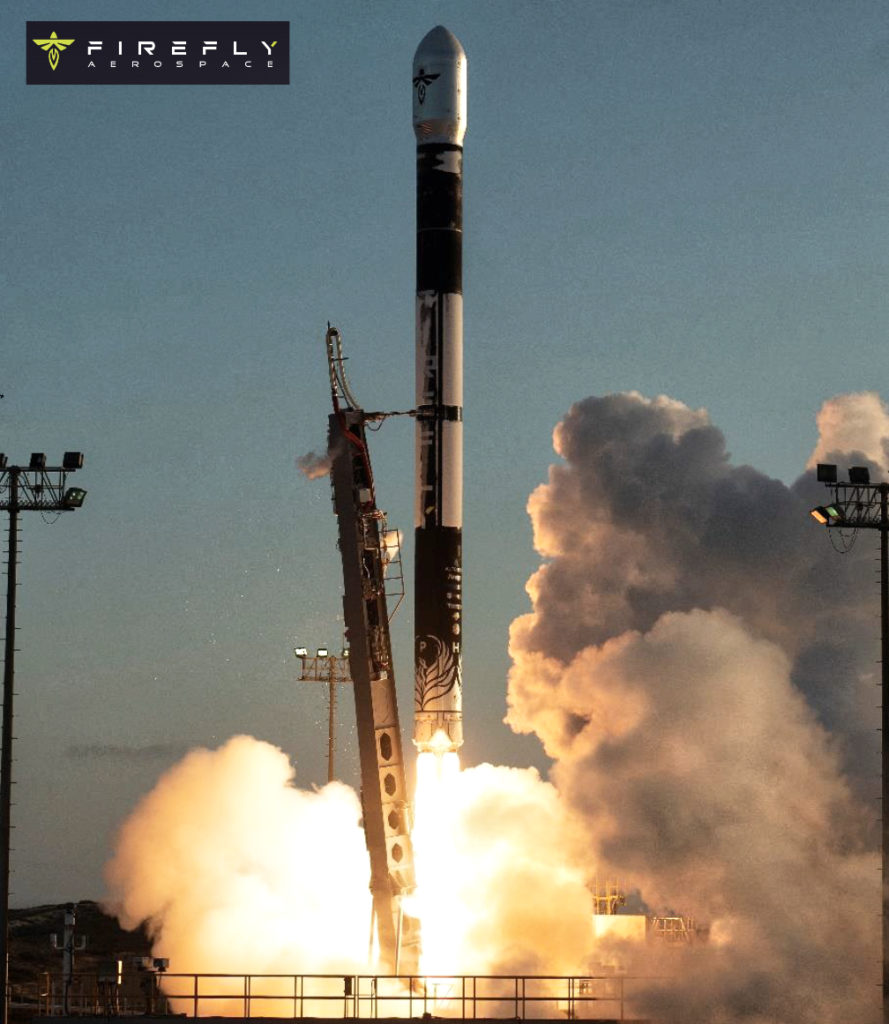
On September 2nd, Firefly Aerospace Inc. conducted the maiden flight of their Alpha launch vehicle from Vandenberg Space Force Base in California.
“Firefly has conducted the first test flight of our Alpha vehicle. The day marked a major advancement for the Firefly team, as we demonstrated that we ‘arrived’ as a company capable of building and launching rockets,” said Tom Markusic, CEO of Firefly Aerospace. “Although the vehicle did not reach orbit, we acquired a wealth of flight data that will greatly enhance the likelihood of Alpha achieving orbit during its second flight. In short, we had a very successful first flight.”
The test began with a nominal countdown and lift off at 6:59 p.m. PDT and achieved a successful first stage ignition, liftoff from the pad, and progression to supersonic speed. During the flight, the launch vehicle experienced an anomaly that resulted in a safe termination of flight by the Range using the Flight Termination System (FTS).

Initial review of flight data indicates that an electrical issue caused the shutdown of one of the four, first stage Reaver engines. Firefly is conducting a thorough anomaly investigation and will report root cause of the anomaly at the end of this investigation.
As stated on September 2nd by Space Launch Delta 30, the Alpha rocket was terminated “over the Pacific Ocean at 7:01 p.m. Pacific Time after a successful lift off at 6:59 p.m. …. There were no injuries associated with the anomaly.”
During the two minutes and 25 seconds of flight, Firefly obtained a substantial amount of flight data that will be used to improve the design of future Alpha launch vehicles, including the second flight vehicle, which is currently being integrated for flight at the company’s Briggs, Texas, manufacturing and test facility.
Markusic also stated, “Firefly has been incredibly fortunate to have partners that share our vision and passion. The most difficult and perilous days of Firefly Aerospace were funded by Noosphere Ventures, founded by Max Polyakov. Early on, Max and I created the technological and business development roadmap – the first launch of Alpha being a hard-fought landmark achievement for the entire team. The Alpha launch vehicle was developed by a world-class group of talented and dedicated technical directors. Firefly’s Flight and Test Operations Department, led by Anne Chinnery, Brad Obrocto, and Sean Reilly, built Firefly’s launch facility and successfully conducted the first launch.”
Dr. Max Polyakov, Firefly’s Co-Founder said, “Alpha’s first launch was a historic day for Firefly. I salute and thank the team that has worked so hard to make the vision of Firefly a reality. In just four years, Firefly has developed and flown an Page 3 of 3 orbital class launch vehicle and is building our Blue Ghost lunar lander to go to the Moon in 2023 — incredible accomplishments for such a short time.”
Firefly also thanked their partners at DADA Holdings, Astera Institute, Canon Ball LLC, Reuben Brothers Limited, SMS Capital Investment LLC, Raven One Ventures, XBTO Ventures, Republic Capital and other investors for their support. Firefly acknowledges the outstanding support provided by the United States Space Force through Space Launch Delta 30 at Vandenberg Space Force Base and by the FAA. Alpha Flight 1 was a great example of a private-public partnership.
